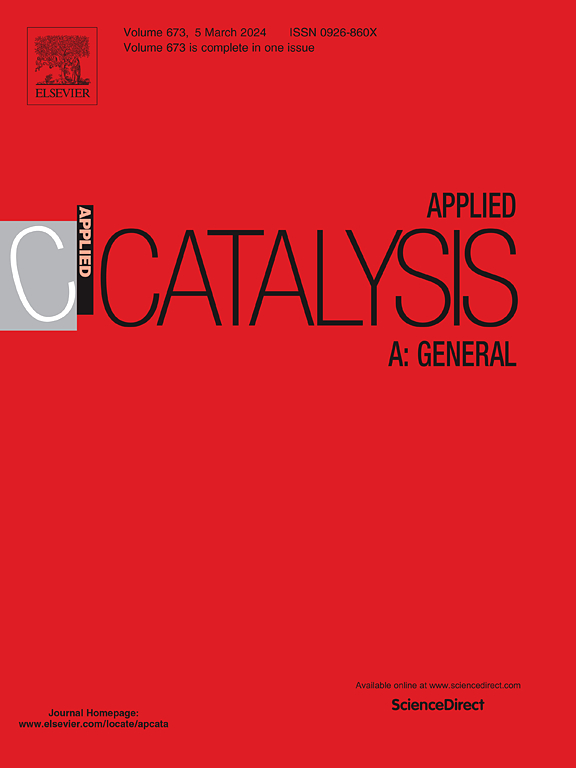Selective hydrogenation of α, β-unsaturated aldehydes/ketones via photocatalytic and electrocatalytic techniques: A review
IF 4.7
2区 化学
Q2 CHEMISTRY, PHYSICAL
引用次数: 0
Abstract
The selective hydrogenation of α, β-unsaturated aldehydes/ketones, while preserving other functional groups within the molecule, is of paramount importance in synthetic chemistry for the precise modulation of product structures and properties. This is particularly crucial in the synthesis of complex and high-value organic molecules. As sustainability concerns intensify, the development of catalytic technologies that adhere to green chemistry principles has become an urgent imperative. These advancements not only address the rising demand for chemicals but also respond to the global call to mitigate unsustainable practices. This review focuses on the selective hydrogenation of α, β-unsaturated aldehydes/ketones, highlighting significant progress and breakthroughs in photocatalysis and electrocatalysis within the non-traditional thermal catalysis framework over the past decade. It provides an in-depth analysis of the characteristics and design principles of catalysts, catalytic systems, performance metrics, and the mechanistic pathways involved. Moreover, this review examines the factors influencing the selective hydrogenation of C![]() C/C
C/C![]() O bonds, pinpointing potential focal points for the development of green and sustainable hydrogenation systems for these compounds. Through elucidating these advancements, the review aims to offer valuable insights for further innovations in green and sustainable synthetic chemistry.
O bonds, pinpointing potential focal points for the development of green and sustainable hydrogenation systems for these compounds. Through elucidating these advancements, the review aims to offer valuable insights for further innovations in green and sustainable synthetic chemistry.
求助全文
约1分钟内获得全文
求助全文
来源期刊

Applied Catalysis A: General
化学-环境科学
CiteScore
9.00
自引率
5.50%
发文量
415
审稿时长
24 days
期刊介绍:
Applied Catalysis A: General publishes original papers on all aspects of catalysis of basic and practical interest to chemical scientists in both industrial and academic fields, with an emphasis onnew understanding of catalysts and catalytic reactions, new catalytic materials, new techniques, and new processes, especially those that have potential practical implications.
Papers that report results of a thorough study or optimization of systems or processes that are well understood, widely studied, or minor variations of known ones are discouraged. Authors should include statements in a separate section "Justification for Publication" of how the manuscript fits the scope of the journal in the cover letter to the editors. Submissions without such justification will be rejected without review.
 求助内容:
求助内容: 应助结果提醒方式:
应助结果提醒方式:


